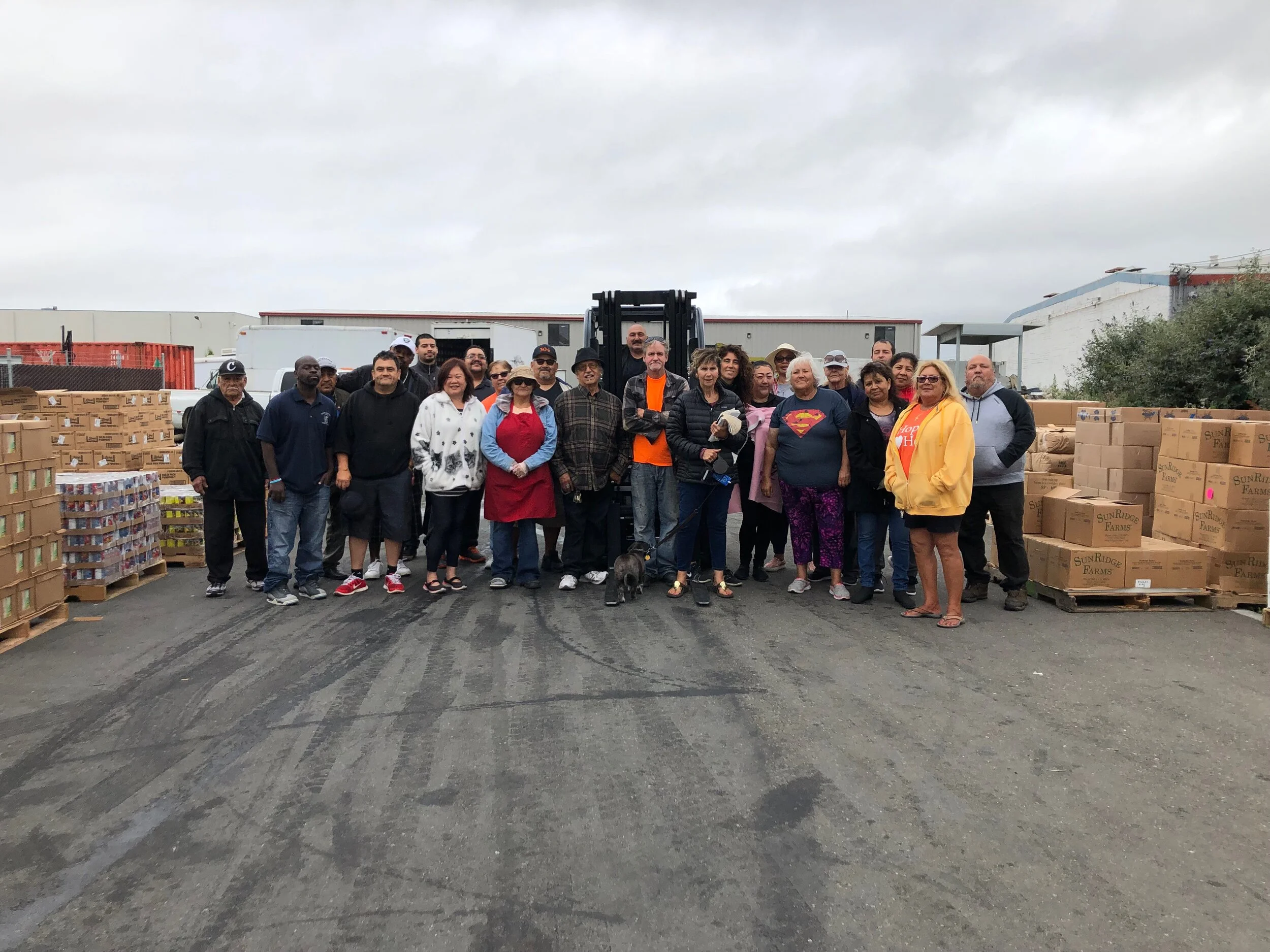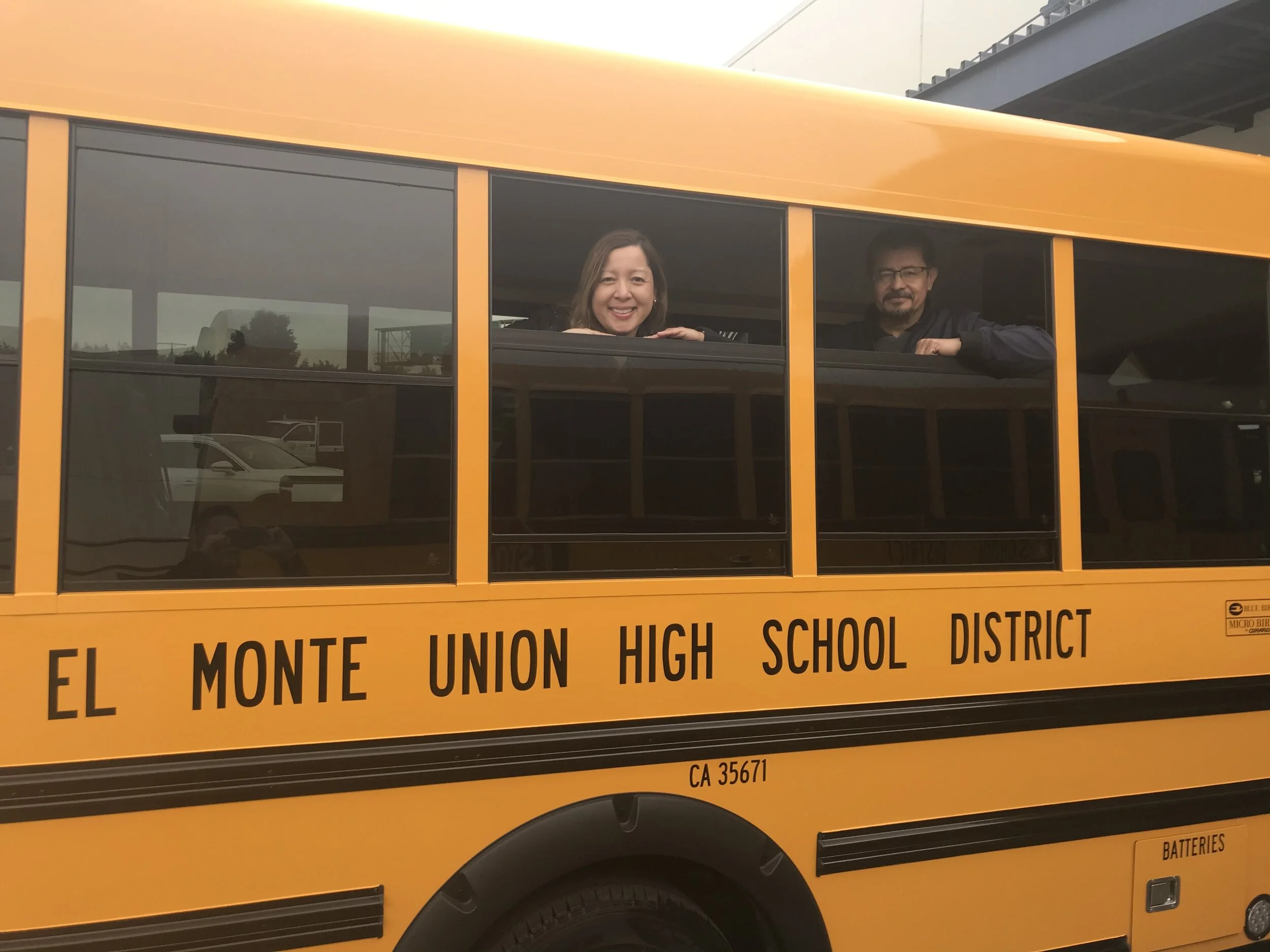The adjacent ports of Long Beach and Los Angeles combined are the largest fixed sources of air pollution in the South Coast Air Basin, one of the most polluted air basins in the United States, in large part because the trucks and equipment used at the ports burn diesel fuel. Recognizing this, the Sustainable Terminals Accelerating Regional Transformation demonstration project was awarded $50 million to replace trucks and equipment with zero‑emission technology. The funding, which comes from California Climate Investments, supports the deployment of 102 pieces of zero‑emission terminal equipment and trucks at seaports across California, including at the ports of Los Angeles and Long Beach. These funds are also supporting the development of new, cleaner tugboats; the deployment of two container vessels with cleaner‑burning engines; and advanced workforce development programs to support sustainable goods movement across California.
Supporting Ecosystem, Community, and Cultural Resilience at Clover Valley Ranch
With help from a $680,974 grant from California Climate Investments through the Wetlands & Watershed Restoration Program, the Sierra Fund and project partners are carrying out multi‑benefit restoration efforts at the 2,655‑acre Clover Valley Ranch. Initiated in 2017, this project will sequester nearly 188,000 metric tons of carbon dioxide equivalent while halting stream incision; increasing biodiversity; and improving hydrologic function, flood reduction, sediment filtration and water quality. However, the goal of this project extends beyond of ecosystem function and carbon sequestration benefits; these activities will also support community and cultural resilience through the promotion of cultural skills and activities.
Wishing Tree Park Provides New Green Space in West Carson
One of the Los Angeles Neighborhood Land Trust’s most exciting parks currently under construction is the 8.5‑acre, multi‑benefit Wishing Tree Park located in unincorporated West Carson, Los Angeles County. This project has been in the works for decades, and thanks in part to a $2,500,000 grant from California Climate Investments through the Urban Greening Program the park will be opening to the public in late 2021.
Reclaimed Urban Wood Supports Small Businesses and Reduces Landfill Emissions
A $996,600 grant from California Climate Investments through the Urban and Community Forestry program will help Urban Salvaged and Reclaimed Woods, Inc. pilot a shared storefront project. This storefront will allow businesses handling salvaged wood from urban areas to combine resources to better process, market, and sell their products.
Bringing Electrification and Energy Efficiency to Low-income San Francisco Communities
The Tenderloin Neighborhood Development Corporation’s (TNDC) commitment to help San Francisco’s low‑income communities thrive by building affordable housing was energized by an electrification project at its SOMA Studio and Family Apartments (SOMA Apartments) in 2020. The effort is supported by a $633,000 award from California Climate Investments through the Department of Community Services and Development’s Low Income Weatherization Program’s (LIWP) Multi‑Family component. With that money and contributions from other local energy efficiency programs, TNDC kept utility bills low for residents while electrifying major central building systems and reducing greenhouse gas emissions. Built in 2003, the SOMA Apartments include 162 homes with more than 60 percent of its households classified as extremely low‑income (earning less than 30 percent of the area median income).
Training and Partnerships Bring Community Solar to Low-income Households
Thanks to $2 million from California Climate Investments through the Low‑Income Weatherization Program, GRID Alternatives Inland Empire is implementing the Community Solar Pilot project, the first community solar array in California specifically designed to benefit low‑income households. Situated on Santa Rosa Band of Cahuilla Indian tribal lands in Riverside County, the Community Solar Pilot project will not only lower energy costs for tribal members and other low‑income households but also provided an opportunity for tribal members to gain valuable experience as solar installation trainees.
High-Speed Rail Construction Prioritizes Jobs and Sustainability
The High‑Speed Rail Authority is responsible for planning, designing, building and operating the first high‑speed rail in the nation. When complete, it will run from San Francisco to the Los Angeles basin in under three hours, providing a clean alternative to driving or flying. Funded in part by California Climate Investments, the project is already contributing to economic development and a cleaner environment, creating jobs, and preserving agricultural and protected lands.
Rebuilding Healthy Soil on the Urban Edge of Chico
Pamela Posey of Harpos Organics is revitalizing soil health on two acres of walnut trees that have been farmed for more than 40 years. Since her December 2017 purchase of the property, located on the urban edge of Chico, California, Posey has managed the land using healthy soil management practices. In her quest to restore the property from the ground up, Posey turned to the Healthy Soils Program and received a $8,860 grant from California Climate Investments with a $1,500 cost share to achieve her goals of improving the health of the soil and providing increased biodiversity.
Microgrid Brings Efficiency and Resilience to Food Processing Facility in Coachella
Food Waste Prevention and Rescue in Alameda County
Suppressing Wildfire with Fuel Breaks in Elk Creek and Stonyford
The Elk Creek Fuel Break, one of the 35 emergency fuel reduction projects prioritized in the Governor’s 2019 Community Wildfire Prevention and Mitigation Report, was completed in part with $325,000 in California Climate Investments funds. California Department of Forestry and Fire Protection implemented the project to protect lives, property, and valuable agricultural resources in the communities of Elk Creek and Stonyford, which are adjacent to the Mendocino National Forest. During the 2020 Butte/Tehama/Glenn Lightning Complex Fire, the Elk Creek Fuel Break helped contain the fire with eight miles of fire line.
Driving Clean Financing Assistance Program
The Community Housing Development Corporation, a community‑based organization in Richmond, received over $6.5 million from California Climate Investments for a pilot project to assist with the purchase of newer, cleaner cars in low‑income households in Sacramento and the Bay Area. The pilot project, known as Driving Clean Assistance Program, provides up to $5,000 for hybrid or plug‑in electric vehicle price buy‑down and up to an additional $2,000 for electric vehicle service equipment. The pilot enables low‑income individuals and families, who would otherwise not qualify for a loan due to credit challenges, to obtain a loan at competitive rates. This transformative initiative includes credit counseling, budget counseling, and financial education.
Closed-Loop Recycling Solutions for Irrigation in the Central Coast
Netafim Irrigation, Inc. received a total of $2,011,647 from California Climate Investment through the Recycled Fiber, Plastic, and Glass Grant Program. This money supports its operations as a closed‑loop recycling solution for used irrigation tubing that serves commercial farming operations in the Central Coast region of California. Netafim’s grant is expanding an established and successful recycling operation. As a result of this expansion in Netafim’s operations, the project is estimated to divert 83,059 tons of material from landfills and reduce greenhouse gas emissions by 66,447 metric tons of carbon dioxide equivalent.
FARMER, Heavy Duty, Off Road, Tractor Trade Up Projects, San Joaquin Valley
The Funding Agricultural Replacement Measures for Emission Reductions (FARMER) program provides up to 80 percent of funding for agricultural vehicle and equipment replacement and repower projects. Thanks to this program, Jannifer Mytych and Agri‑World Cooperative were approved by the San Joaquin Valley Air Pollution Control District to receive California Climate Investment funds for new tractors to help reduce emissions while maintaining their almond farms.
Capturing Methane to Create Renewable Fuels in Kern County
The CalBioGas Kern County biogas cluster – or Kern Cluster – was developed by a joint venture between California Bioenergy, Chevron U.S.A. Incorporated, and several California dairy farmers. The Dairy Digester Research and Development Program has awarded grants totaling over $17.6 million from California Climate Investments to the dairy operations in the Kern Cluster, which is comprised of eight family‑owned dairy farms. Thanks to these funds, these dairies now capture and prevent the release of methane – a greenhouse gas 25 times more potent than carbon dioxide – and are creating a renewable source of fuel.
Building Coastal Resilience in Santa Cruz
In light of critical dangers to the city of Santa Cruz’s roughly 4.6 miles of coastline posed by climate change, the city is using a $200,000 grant from California Climate Investments through the Coastal Resilience LCP Planning Grant Program to develop strategies and policies intended to protect public beach access, prevent community displacement, and build resiliency against future coastal hazards.
Adapting to Sea Level Rise in Carlsbad
A major transportation corridor in the city of Carlsbad, South Carlsbad Boulevard is highly vulnerable to flooding and erosion as a result of climate change. But thanks to a $498,075 grant from California Climate Investments through the Climate Ready Grant Program, the city was awarded in 2019, Carlsbad is creating a plan to protect a portion of the boulevard that is particularly vulnerable to sea‑level rise, frequent coastal flooding, and cliff erosion.
Community Knowledge and Collaborative Research Facilitate Equitable Energy Transitions
In Los Angeles County, transitioning to clean, renewable energy will improve air quality and reduce the overall carbon footprint in California’s most populous region. With a $638,878 award from California Climate Investments through the Climate Change Research Program, a partnership led by the University of California, Los Angeles and Liberty Hill Foundation is helping to make this transition equitable, affordable, and beneficial for people living in the area’s priority populations. That means engaging these communities at all stages of the research.
Reducing Exposure to Air Pollution with Electric School Buses in El Monte
Thanks to $9.8 million from California Climate Investments, El Monte Union High School District will be able to implement their Clean Mobility in Schools project, one of three projects awarded to school districts across California in 2020. These funds will help El Monte Union High School District purchase battery electric school buses and charging infrastructure, energy storage infrastructure, develop an active transportation plan, and much more, across six high schools and one bus garage.
Reducing Fire Risk Through Hands-On Training Opportunities
The California Conservation Corps, a state department within the California Natural Resources Agency, uses funds from California Climate Investments to complete projects aimed at reducing greenhouse gas emissions across California. These funds target forest health projects, especially fuel load reduction where dead and dying trees, brush, and vegetation are removed to reduce wildfire intensity and rate of spread. The McKay Community Forest Fuel Reduction project provided skilled labor to Humboldt County to minimize fire danger near communities on the southeastern edge of the City of Eureka.






















